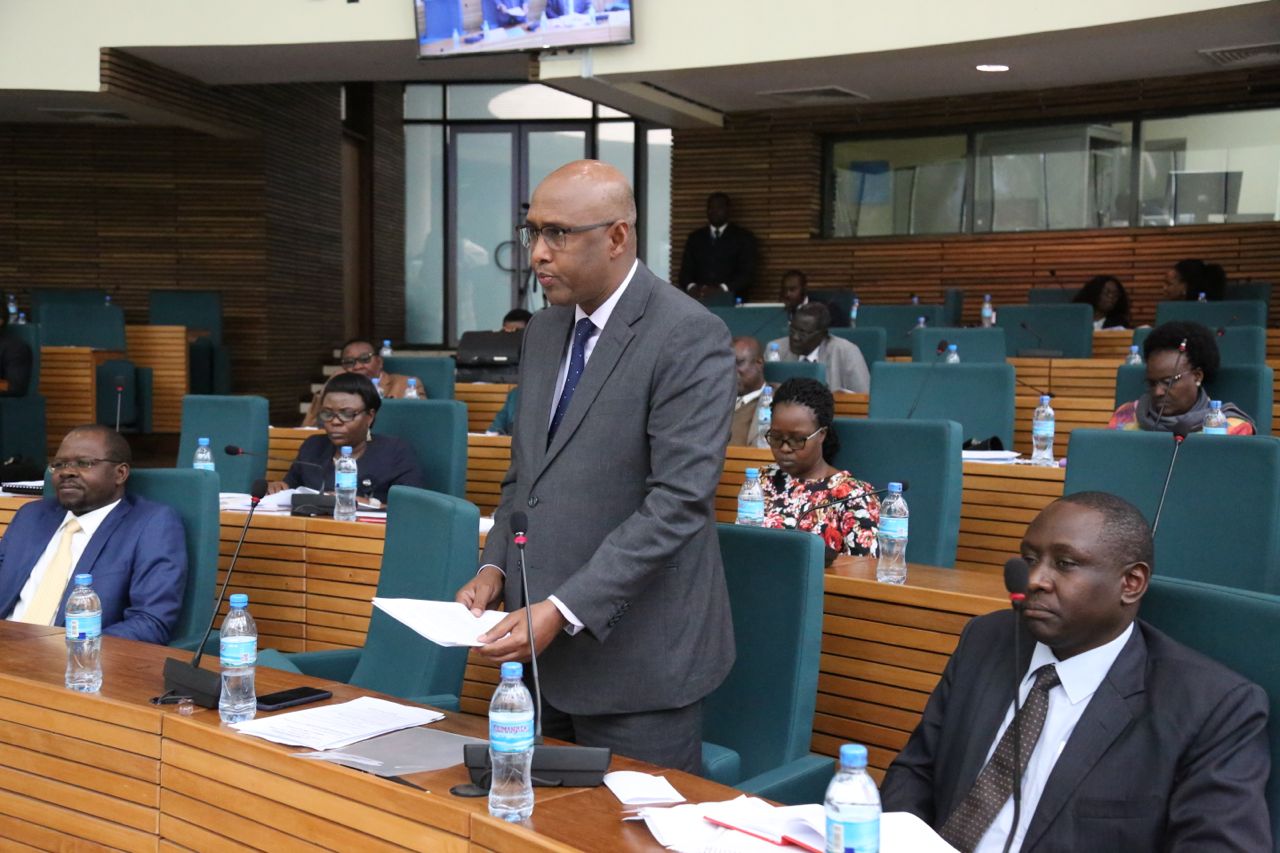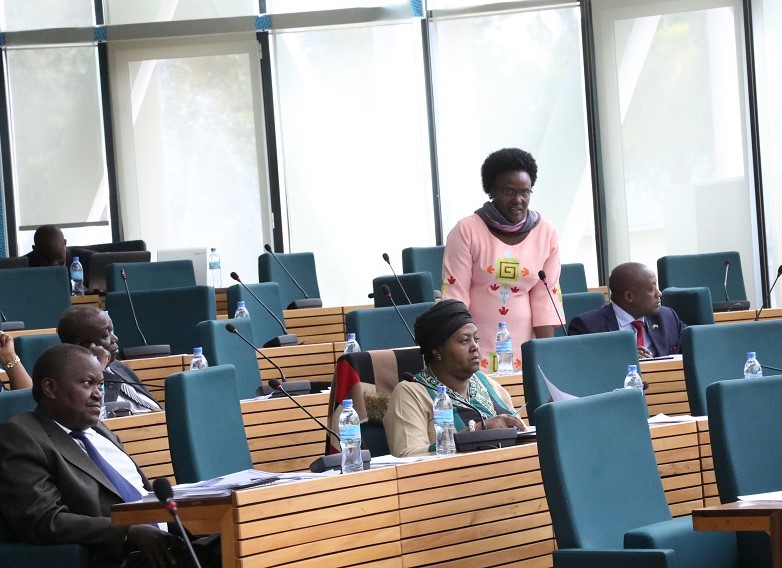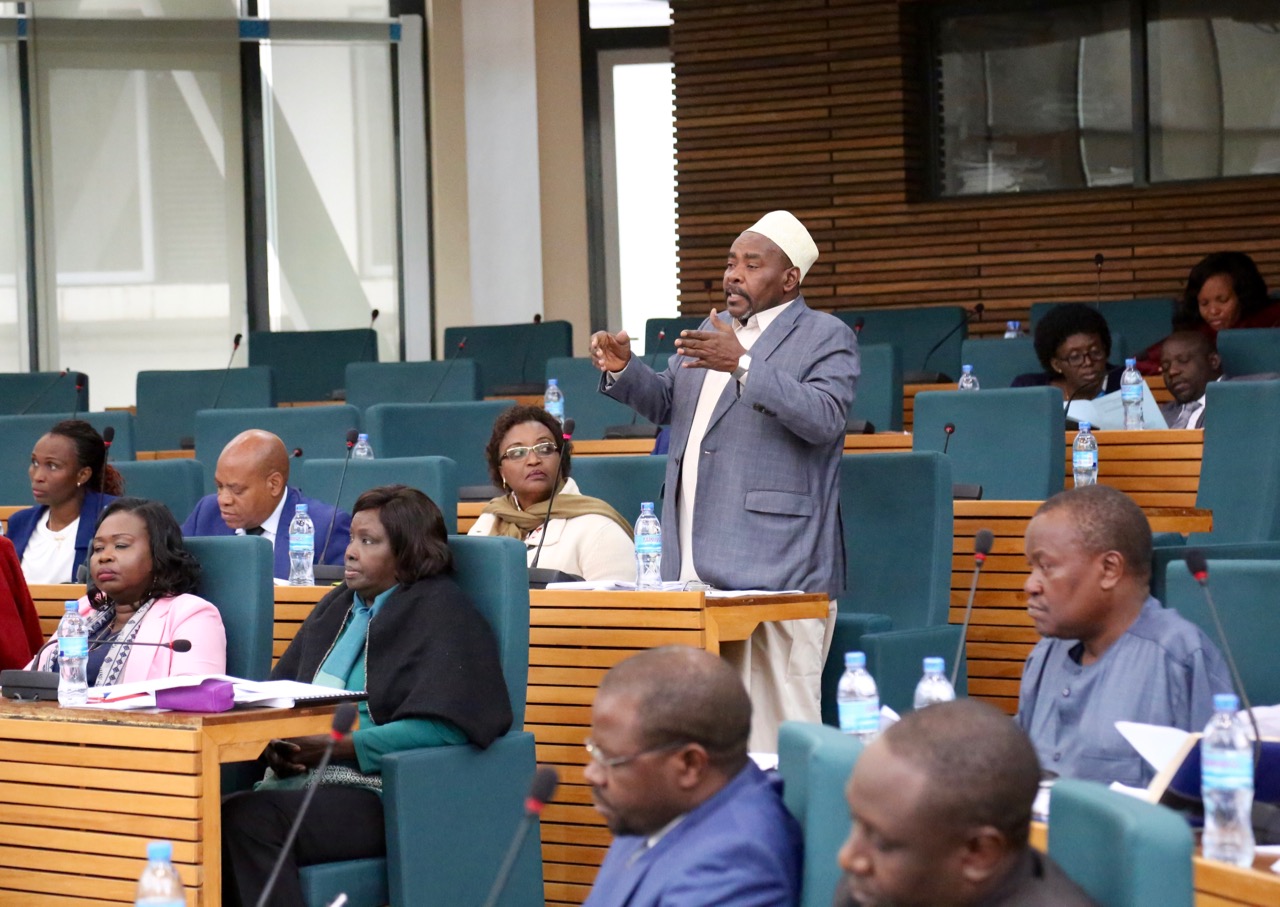
Posted in Press Release
…dissociates Government/citizens & clears the air over remarks made by Starehe legislator
East African Legislative Assembly, Arusha, Tanzania: 27 June, 2019: The Government of Kenya has clarified the matter over the recent offensive utterances made by a Member of Parliament of Starehe Constituency in Nairobi.
Kenya’s Cabinet Secretary, Ministry of East African Community and Regional Development, Hon Adan Mohammed, informed the Sitting of the East African Legislative Assembly this morning that Republic of Kenya was “duly and fully” committed to the EAC integration process.
In addition, Hon Mohammed, while dissociating the Government of the Republic of Kenya from the utterances of the MP, sounded a stern warning to other like-minded leaders in the country and region who may be harboring similar agenda.
Continue Reading

Posted in Press Release
…debate on current financial budget continues today
East African Legislative Assembly, Arusha, Tanzania: 25 June, 2019: The Assembly late yesterday passed a supplementary budget amounting to USD 390,000 for the Financial Year 2018/19.
The Supplementary budget is (to be utilized) for the repair and maintenance of the EAC headquarters in Arusha and to facilitate negotiations with development partners during the financial year ending 30th June 2019.
Out of the said amount, USD 305,000 will support the maintenance of the bloc’s headquarters while the balance (USD 85,000) is to support the negotiations for development partners.With it, the Assembly also passed the EAC Supplementary Appropriation (No 2) Bill, 2019. The passage of the EAC Supplementary Bill was preceded by a report presented to the House by Chairperson of the General Purpose Committee, Hon Abdikadir Aden. The House then dissolved itself in to a Committee to consider the ‘nuts and bolts’ of the Bill before its eventual passage.
Continue Reading


